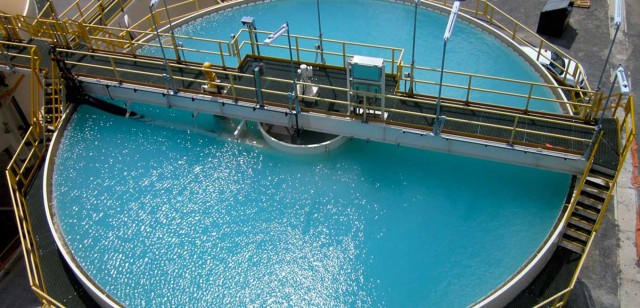South Africa races to broaden access to clean water
South Africa has made significant strides in broadening access to clean water and sanitation in the last 20 years and official estimates from the Department of Water Affairs and Forestry indicate that more than R670 billion is needed to improve the public water sector to meet the growing demand over the next 10 years.
This investment is expected to find home across the water industry supply chain as the government plans to invest in building new dams, bulk-water transportation schemes, and wastewater treatment plants.
According to the 2011 National Census, access to piped water inside dwellings improved from 60.7% of the population in 1996 to 73.4% in 2011 while access to sanitation increased to 36.4% from 28.6%. The government wants 100% access by 2025.
Fred Platt, CEO of Accentuate, whose subsidiary Safic has a joint venture with Indian water purifier Ion Exchange, has noted that the growing demand for quality water from an already overstretched infrastructure has created a “major paradox” for South Africa.
“South Africa faces a major paradox in that it supplies some of the cleanest water in the world but due to the lack of effective sanitation, the threat of water borne diseases is steadily growing. Overall infrastructure is lacking or failing and the increased demand for water is placing additional strain on the available resource,” warns Platt.
Thebe Investment Corporation has an equity stakes in Accentuate Headstream Water, which is also a player in wastewater treatment.
The R670 billion spending by government in the water sector will create business and employment opportunities across the industries value chain.
Prospects have never been brighter for professional engineers, artisans, bio-chemists, micro-biologists, hydro-geologists, and environmental scientists wanting to provide their expertise as either consultants or employees to companies bidding for water-related projects.
To construct, operate and maintain water infrastructure, South Africa needs high-level skills like civil and electrical engineering, but below this level there is a need for artisans, whose skills are transferable to other industries such as ship building, and repair and maintenance of oil and hydro rigs.
The revival of the FET colleges is expected to play a crucial role in the development of artisan skills such as plumbing, welding, boiler-making, which are in short supply in the water industry.
On the business opportunities front, the water capital expenditure presents a number of opportunities in the short, medium, to long term. These include:
• The provision of maintenance solutions for the existing ageing infrastructure
• The provision of infrastructure solutions ranging from piping through to cement for the construction of dams and reservoirs
• The provision of chemical and mechanical water treatment solutions
• The design and management of water treatment facilities for both the public and private sectors
• Water management consulting
• Desalination and related technologies
• Integrated water treatment solutions for large installations such as refineries and power stations
• The provision of sanitation solutions including the upgrading and renovation of existing facilities


